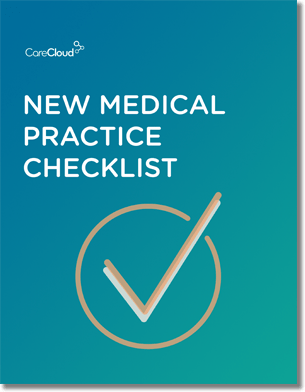Power Your Practice continues to focus on the state of individual medical specialties and the functionality each requires from their health IT. In this updated post, we take a closer look at cardiology with its distinct set of challenges and requirements.
The State of Cardiology
Cardiologists prevent, diagnose and manage conditions of the cardiovascular system. The two main types of cardiologists include:
Non-interventional cardiologists prevent and treat heart problems but do not perform certain surgeries. They also primarily work in office settings, seeing between 25 and 30 patients each day.
In contrast, interventional cardiologists perform procedures like cardiac catheterizations, balloon angioplasties and stent placements. They predominantly work in hospitals.
Large group practices tend to combine office-based providers and interventional cardiologists under one tax ID. These larger cardiology groups can benefit from modern practice management software that integrates multiple providers and easily expands to keep up with practice growth and expansion.
What Type of Software Functionality Do Cardiologists Need?
The complexity of cardiology and cardiology conditions mandates powerful, versatile software that addresses the unique needs of the specialty. For example, cardiologists could face considerable challenges with ICD-10 implementation. In addition to coding right and left side procedures, they need to be extremely explicit about their processes, e.g., specific vessels, type of flutter, etc. to optimize cardiology billing.
For these reasons, cardiologists need a practice management system ready to handle the arrival of an ICD-10 system with about 68,000 codes. In fact, some cardiologists are choosing to outsource medical billing to an external team of experts to ease the burdens of revenue cycle management.
Because almost 60% of cardiologists spend more than 10 hours a week on paperwork and other administrative tasks, they should choose practice management systems that can streamline administrative duties.
From a clinical point of view, look for electronic health record features that provide intelligent clinical decision support and facilitate Meaningful Use for cardiologists (such as Clinical Quality Measures and Consolidated-Clinical Document Architecture [C-CDA]). In addition, cardiology-specific templates can streamline patient encounters, while other customizable templates can speed up letter writing and automatically send them to patients, providers or payers.
A cardiologist’s EHR should also provide eprescribing capabilities with a focus on preventing drug interactions. Many older cardiology patients routinely take multiple medications, thereby increasing their risk for adverse interactions.
Also search for software that promotes and speeds communication among physicians and between cardiologists and staff. Cardiology often involves multidisciplinary care and a high proportion of referrals from primary care doctors and other specialists.
If cardiologists keep these features in mind when shopping for practice management software and a 2014 Meaningful Use certified EHR, they’re more likely to find solutions that benefit their daily workflow now and going forward.
Xavier E. Martinez contributed to this post.
Cloud-based software for cardiologists not only provides these features but also facilitates secure access to the practice schedule, patient charts, and more from any browser, anywhere with a reliable Internet connection.
The material and information contained on this website is for general information purposes only. You should not solely rely upon the material or information on the website as a basis for making any business, legal, medical, or any other decisions. While we endeavor to keep all information up-to-date and correct, all information in this site is provided "as is," and CareCloud Corporation and MTBC Inc. make no representations or warranties of any kind, express or implied, about the completeness, accuracy, reliability, suitability, or availability with respect to the information contained on the website for any purpose. Any reliance you place on such material is therefore strictly at your own risk.

Do you know what you need when setting up a new medical practice?


